Do you know what should – and more to the point, shouldn’t – go down your drains? A whopping 93.9% of people declare that they are confident knowing what should and shouldn’t be poured down the drain or flushed down the toilet, leaving only 6.1% saying they are not too sure.
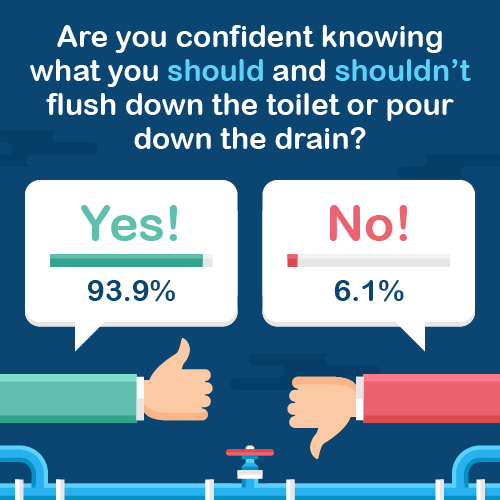
But are they correct? UKDN have conducted some research to find out more about what people put down their drains – What The Flush? – and discovered that many people don’t quite have their facts straight after all.
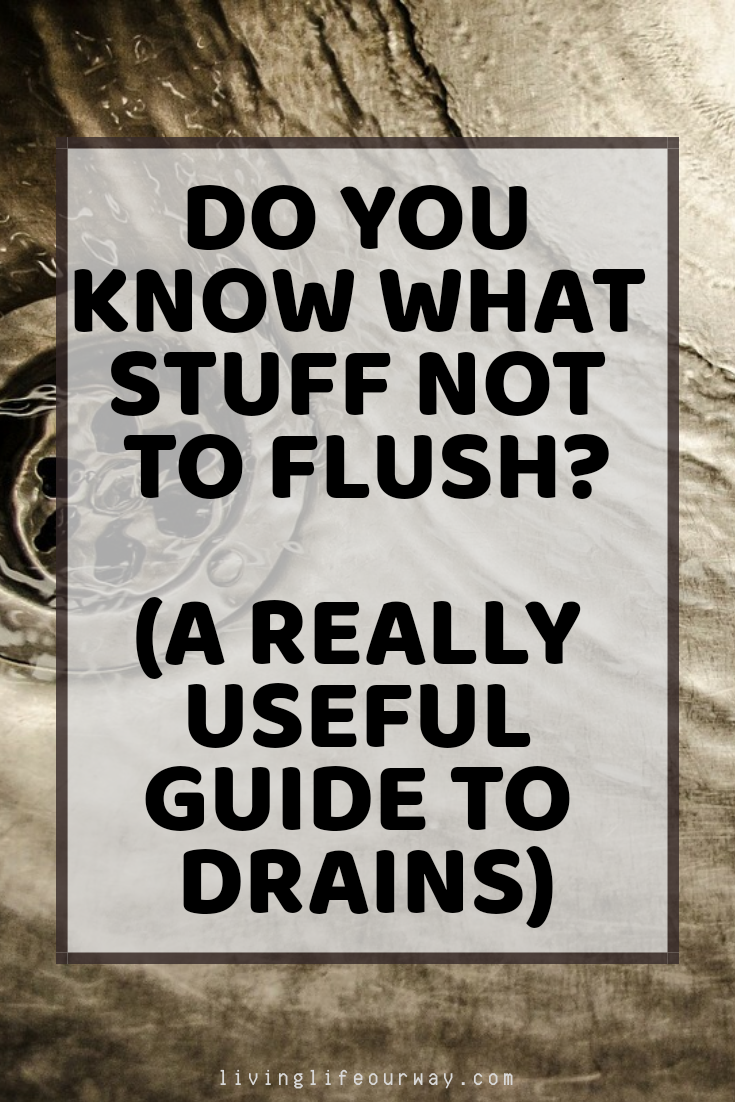
Down the Drain
When asked what items they pour down the sink, almost a quarter admitted to pouring cooking oil (24.7%) and coffee granules (24.7%) down the sink. Worse still, just under half the people surveyed – 43.5% of them – pour sauces down their drain. Other culprits included meat fat (22.3% of people) and actual food leftovers (18.4%). So it seems some people don’t have it quite right after all…
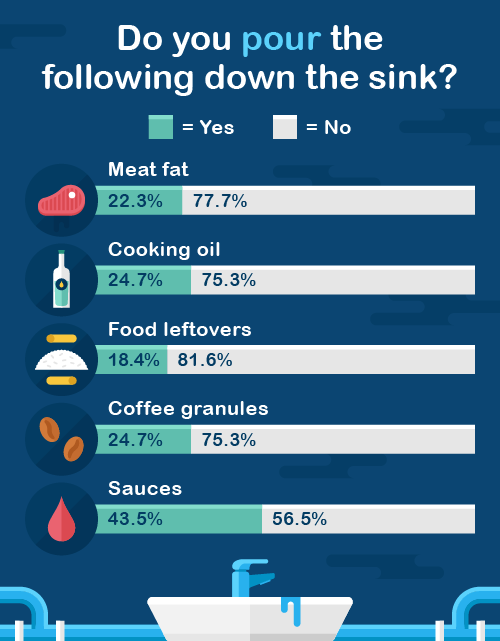
Bathroom Habits
The research also looked into what goes on in the bathroom; which items people flush away or pour down their bathroom drains. Whilst I was less surprised to see that 18.6% confess that their hair goes down the plug hole, I was disappointed to find out that a small minority of people still flush away their sanitary wear (10.6% for tampons and 8.6% towels) and was even more shocked to discover that 5.5% of people flush away nappies, 3.7% cigarette butts and 4.7% also dispose of condoms this way too?! Wet wipes are a massive issue as well, so it was sad to see 14.1% of people are still yet to get the message about those.
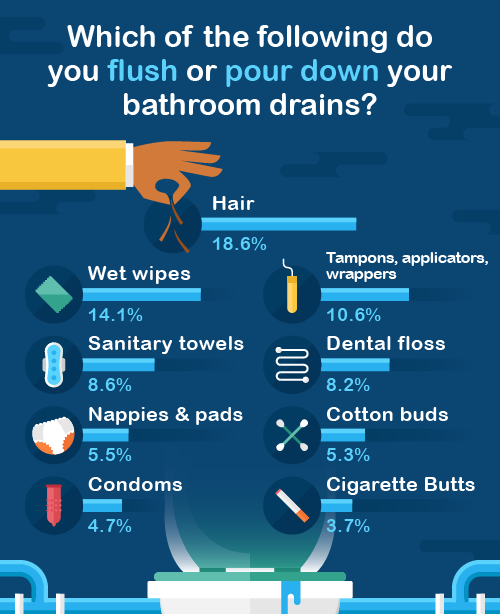
So what’s the issue?
There has been plenty of media attention about wet wipes lately, the main problem being that they are made of non biodegradeable plastic. Packaging is often misleading too, stating they are flushable, which causes a huge amount of concern for our environment. Some research suggests wet wipes account for as much as 93% of blockages in UK sewers and many campaigners would like to see a ban on them altogether.
But, of course, it is not just the wet wipes that are the issue here. Even the kitchen items which, whilst in theory might seem less of an issue as at least these are more organic matter, still block up drains. Oil can solidify, food lumps together, sauces congeal, and so on.
All of this combined is then the real major issue; because put together it creates a solid mass known as a fatberg. A fatberg is a congealed lump in a sewer system formed by the combination of non-biodegradable solid matter, such as wet wipes, with grease or cooking fat. They have become an increasing problem in recent years. The remains of a massive fatberg found in London sewers is even on display at The Museum of London to try to highlight the problem!
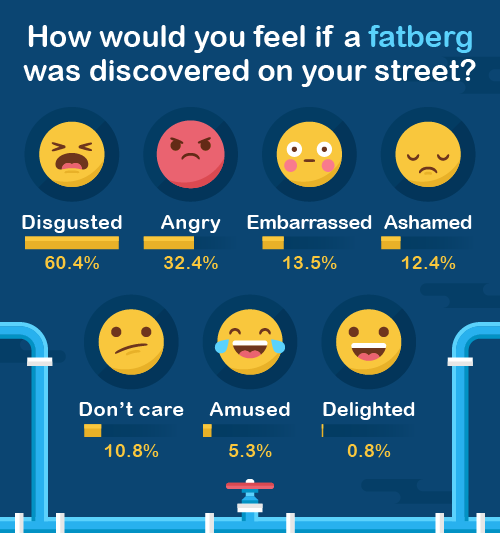
In addition to this issue, other single-use plastics, which never break down completely and cause huge issues for marine life, are also being sent off to pollute our environment. Along with the various other items, if they don’t turn into fatbergs and block our sewers on the way, still end up somewhere they shouldn’t be! All of which leads to damaging effects on our environment, water and wildlife. One way or another, it causes an issue.
Furthermore, when our drains get blocked at home, harsh chemicals are often then required to unclog them too, leading to yet further pollution. Clearly the best solution would be to just stop doing all this in the first place!
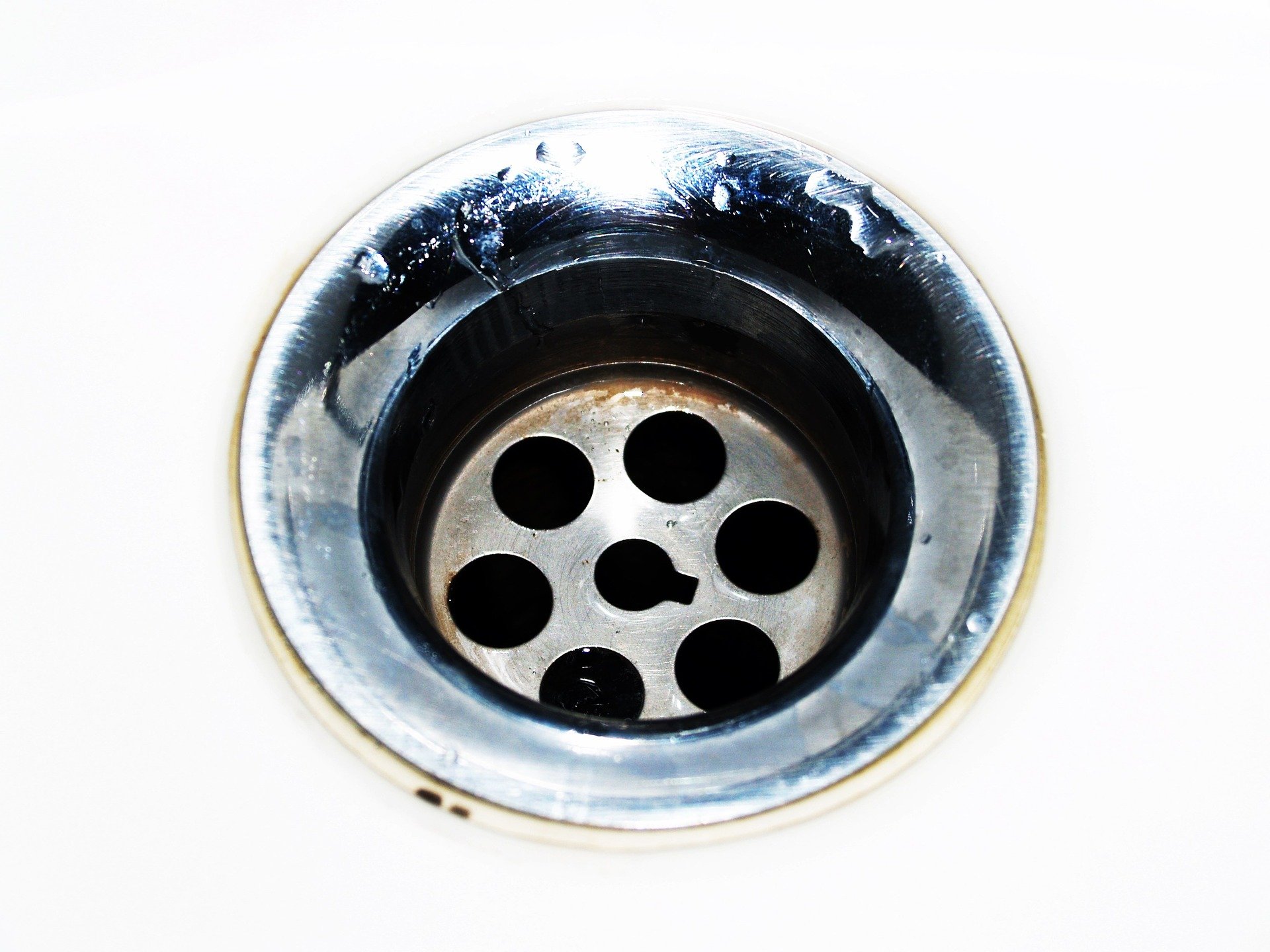
Top Tips
So here are my top tips to help keep drains unblocked and to develop more environmentally- friendly habits in your home…
• Avoid putting oil, fat, sauce, coffee and food waste down your kitchen drain by disposing of it correctly. For oil, fat and sauce either let it solidify then tip it into the trash, or pour it into a non- recyclable container and throw it away. Small amounts of solidified waste can be put in with food waste in some areas – check with your local council. Coffee granules and all food leftovers also go in your food waste bin.
• Keep hair out of your bathroom drains by brushing it thoroughly before you shower. Use a plug hole guard if you are prone to shedding and ensure you remove any trapped hair then discard it before it has a chance to disappear into your drain.
• If you use coconut oil (or any other type of natural oil) to wash your hair, try to rinse it off into a bowl so that it doesn’t wash down your drain. Failing that, run the hot tap for several minutes straight after rinsing, provided the tap comes out with very hot water. Or pour boiling water down the drain straight after use.
• Try to replace disposables with reusables if at all possible. If you do use single-use items, dispose of them correctly. This usually means in the bin, unless it can be recycled!
• Use home-made unblocker if needed. Try using baking soda and white vinegar to clear your drains. It will fizz up and create bubbles instantly; pour it down the drain as quickly as possible. Follow it up with boiling water later on.
• Contact UKDN drain unblocking service if you are experiencing issues with blocked drains. Sometimes a professional is needed!
I hope this advice is helpful. Have you discovered any useful drainage tips? Let me know in comments!
*Disclosure: This is a collaborative post.

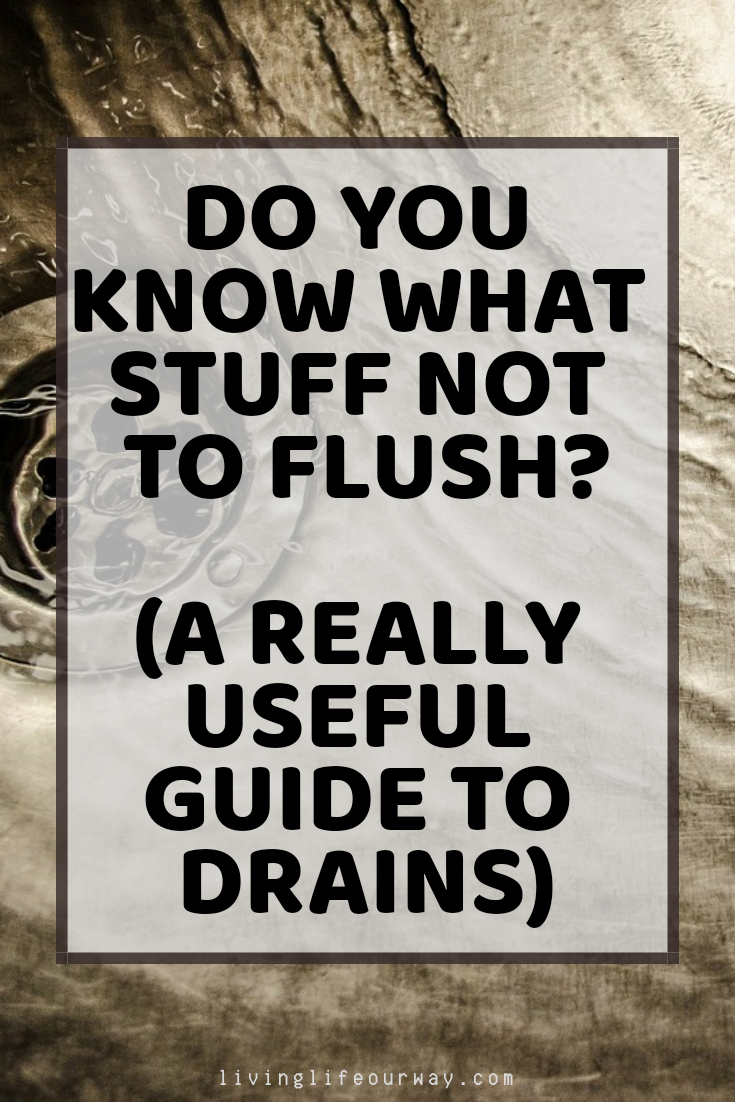
So many people have no idea what they should and shouldn’t be flushing so this is a really useful post! I’ve often heard people say that they flush make-up wipes and similar items down the toilet, which is an absolute no-no. I really like your top tips and I think, if we all followed these guidelines, we’d be on our way to a more eco-friendly world (and we’d have to call out emergency plumber’s far less frequently…)